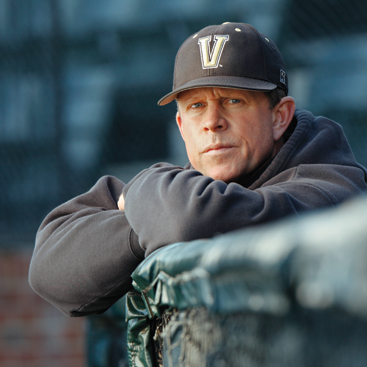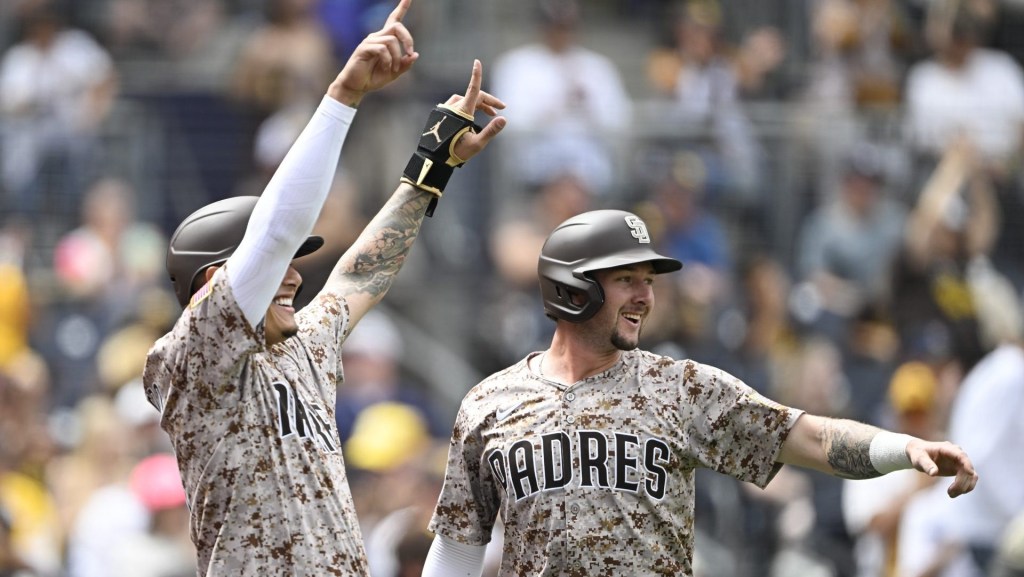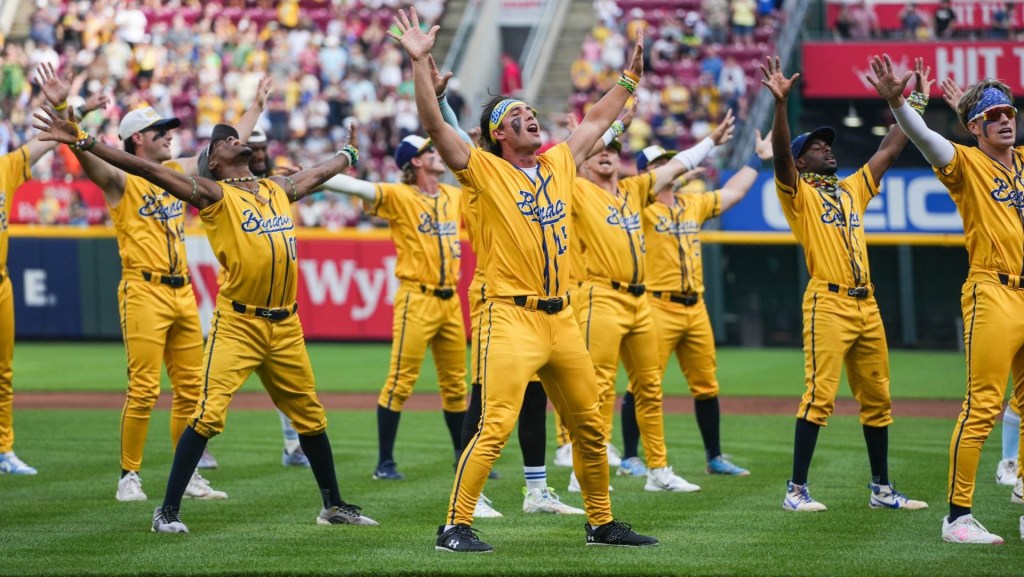By: Chase McCaskill, @itsmechase

Front Office Sports had the privilege to speak with Coach Tim Corbin, the Head Coach of the Vanderbilt Men’s Baseball Team. Under Coach Corbin’s tutelage, the Commodores have had 11 NCAA Tournament appearances, three appearances in the College World Series being the runner-up in 2015 and National Champions in 2014. Coach Corbin shared the story of his journey through coaching in the college ranks as well as the importance of a strong relationship with your Athletic Director. He went on to share with us his advice for those interested in collegiate coaching!
When did you know you wanted to be a baseball coach and what path did you take to get there?
I think I knew I wanted to be a coach or a teacher at a very early age. I felt like teaching and coaching was a part of what I wanted to do when I finished playing baseball. When I was playing at Ohio Wesleyan, my college baseball coach was also an assistant football coach. Because my roommates were football players, I had this desire to be a part of the football program in the fall. I became a student assistant and helped the coaches with film/sat in on meetings. I did a lot of the things a young, student assistant coach would do.
The head football coach at the time ended up being the GM of the Pittsburgh Steelers, so he was a very good influence on me. After I graduated, I became a high school, JV baseball coach and got my masters degree at Ohio State. From there, I went to Wofford College where the AD there was Danny Morrison who is now the President of the Carolina Panthers. Danny Morrison was the one who contacted Presbyterian College referring me to start their baseball program. After six years, I became an assistant coach at Clemson University. Following nine years at Clemson, I became the head baseball coach at Vanderbilt.
Motivation is key to leadership, how do you keep your team motivated throughout the duration of a baseball season? And how could those skills be translated to a more traditional workplace setting?
Regardless of what we’ve done in our past, or what we might be able to do, the only way we can stay momentary is to immerse ourselves in what we are doing now. I have strong desires for the kids to act and be passionate about what they’re doing everyday. We try not to get distracted with ancillary thoughts outside of what we are doing at the current moment. Regardless of success or non-success, we try to stay motivated in what we are trying to accomplish at the moment more than anything else.
What advice do you give someone getting a degree in something completely unrelated to sports (i.e. Finance) but still wants to get into coaching?
I think redirecting your passions is very easy to do, regardless of your major. The next step in your life is purely based on your passion, visualizing where you want to go, and being an active participant. When I say active participant, I mean really searching out those people that can assist you or help you along the way as you enter the next stage of your life. You have to be respectfully brazen and throw yourself out there sometimes when you want something. Your passion to be a part of something is the driving force behind activating your mind and moving on it. I feel like anyone can do that as long as they are passionate enough.
Many of our readers have aspirations of becoming Athletic Directors for collegiate programs. Can you talk a little bit about the relationship between the AD and a head coach and how you work together to help the program to succeed.
I’ve been around a lot of Athletic Directors, with some being more hands on than others. The AD at Vanderbilt is actually the Vice Chancellor of the school as well. Due to the growth of our program and the help he has given us via fundraising I’ve become very close with him throughout the years. That is a very healthy relationship that has to exist on many levels, with that person being emotionally entrenched in your program. [The relationship] needs to be one cultivated on a very consistent basis. A good Athletic Director knows when to step in and provide support, when you need it or your team needs it. They know when to support you when they think your team needs more growth, from a facilities standpoint. It’s not necessarily a person that says ‘yes’ to everything you desire, but it is someone who helps you funnel your vision and also brings you down to earth.
As a coach, you tend to get so immersed in your kids and your program that it’s easy to lose perspective. An AD who is around at the “right time” and knows when to intercede is very attractive to a coach I would think. Standing beside [your coach] and publicly supporting them sometimes goes a long way. A great quality of an Athletic Director is to stand behind your coaches internally and externally.
Talk about the importance of group cohesion and how do you instill that into your teams?
This is a long process that starts on the very first day you meet your kids. You have to build a very inclusive culture in which all people, including coaches, players, and staff members, are in the middle of a family, dependent on one another. [You have to create] an understanding of positive pride, not individual pride, but team pride. You have to develop a strong inner-circle where those athletes can channel their energy as best as a group in order to be successful. This is a very daily thing that has so much to do with building relationships.
All successful teams boil down to human relationships; humans are only motivated by interpersonal care. This doesn’t mean you can’t demand and drive your kids. You can do this as long as you love them and take care of them. I don’t think this is any different than a father. You have standards inside your family and you just want people to live up to those standards.
Think of a colleague that you have great respect for, what does this person posses that makes them so successful/respected?
It would be a guy named Bruce Brown, a former Athletic Director, I’ve gotten to know him really well over the last eight years. He is someone I respect a great deal because of his sense of balance. He has common sense on coaching and mentoring kids. I’ve learned so much from him about human interactions and what good teams stand for. I’ve been better because of him and our relationship.
Parting Wisdom: What is one, main piece of advice you’d like to give our readers.
So much of what I do personally is not a j.o.b, it’s a lifestyle. The reason it is a lifestyle is that it’s something that makes your heart sing. I think in order to do something that gives you everyday, positive energy, is something you should actively pursue. Whatever you want to do, you’ve got to go out and get it. You have to be an active participant in your own growth and not wait for opportunities to come by. Doing this requires getting your hands dirty, it requires communication, picking up the phone and calling people. You have to be an active participant in your own growth.
We would like to thank Coach Corbin again for taking time out of his day to offer up some great advice for our readers!
You can follow him on Twitter here.






![[Subscription Customers Only] Jun 15, 2025; Seattle, Washington, USA; Botafogo owner John Textor inside the stadium before the match during a group stage match of the 2025 FIFA Club World Cup at Lumen Field.](https://frontofficesports.com/wp-content/uploads/2026/02/USATSI_26465842_168416386_lowres-scaled.jpg?quality=100&w=1024)
![[Subscription Customers Only] Jul 13, 2025; East Rutherford, New Jersey, USA; Chelsea FC midfielder Cole Palmer (10) celebrates winning the final of the 2025 FIFA Club World Cup at MetLife Stadium](https://frontofficesports.com/wp-content/uploads/2026/02/USATSI_26636703-scaled-e1770932227605.jpg?quality=100&w=1024)









